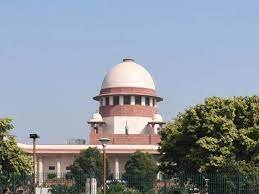In a significant setback for the central government, the Supreme Court of India delivered a ruling on May 11 that grants the Arvind Kejriwal-led Aam Aadmi Party (AAP) regime in Delhi the power to enact laws and exercise control over bureaucrats assigned to government departments. The court further emphasized that civil service officers are “politically-neutral professionals” whose primary duty is to serve the people, rather than political parties.
Chief Justice Chandrachud, the author of the 104-page judgment, asserted the need for a constitutionally entrenched and democratically elected government to have authority over its administration. This includes the various public officers serving under a particular government, regardless of the circumstances of their recruitment. The court firmly refuted the central government’s contention that it retained “administrative control” over officers deputed to the Delhi government.
This verdict marks a significant victory for the AAP-led Delhi government, which has been locked in a protracted power struggle with the central government over control of administrative officers since assuming office. The AAP has consistently argued that its inability to have full control over bureaucrats has hampered its governance and policy implementation efforts.
The ruling also underlines the court’s recognition of the vital role played by civil servants in maintaining the integrity and neutrality of the administration. By categorizing them as politically-neutral professionals, the court reinforced the notion that civil servants should work in the best interests of the public and remain detached from partisan politics. This decision serves as a crucial safeguard against the undue influence of political parties on the bureaucracy and ensures the impartiality of civil service officers.
The court’s judgment has broader implications for the relationship between central and state governments in India. It reaffirms the principle of federalism by recognizing the autonomy of democratically elected state governments in matters of administration and legislation. This interpretation of the constitutional framework upholds the rights and powers of state governments, striking a balance between the federal structure and the need for coordination and cooperation between different levels of governance.
The ruling is expected to have far-reaching consequences beyond the specific dispute between the AAP-led Delhi government and the central government. It sets a precedent that could empower other state governments to assert greater control over their respective bureaucracies, provided they have been constitutionally elected. This could potentially reshape the dynamics between central and state governments and redefine the distribution of administrative powers in the country.
While the judgment grants more autonomy to state governments, it does not completely sever the administrative ties between the central and state bureaucracies. The court recognized that coordination and cooperation between the two levels of government are essential for effective governance. However, the decision emphasizes that the elected government should have the final say in matters of policy implementation and the transfer and posting of officers.
As the ruling comes from the highest court in the country, it is binding and sets a definitive legal precedent. The central government will need to abide by the court’s decision and respect the autonomy of the AAP-led Delhi government in administrative matters. The judgment represents a significant moment in the ongoing power struggle between the two governments and marks a crucial step towards clarifying the constitutional relationship between the central and state governments in India.
Overall, the Supreme Court’s verdict on May 11 grants the AAP-led Delhi government greater control over its administration and emphasizes the neutrality and professionalism of civil service officers. It reinforces the principle of federalism and sets a precedent for state governments to assert their autonomy in administrative matters. The ruling carries important implications for the power dynamics between central and state governments and aims to ensure effective and impartial governance across the country.


